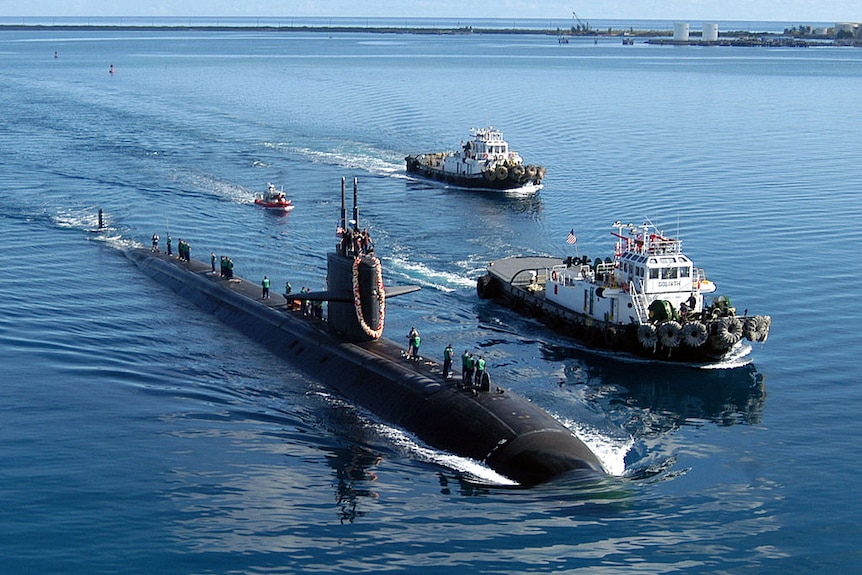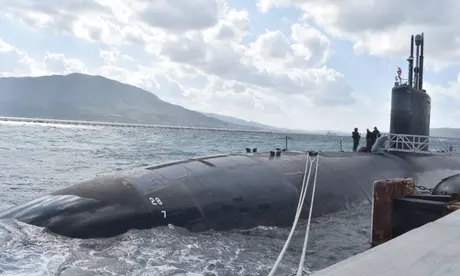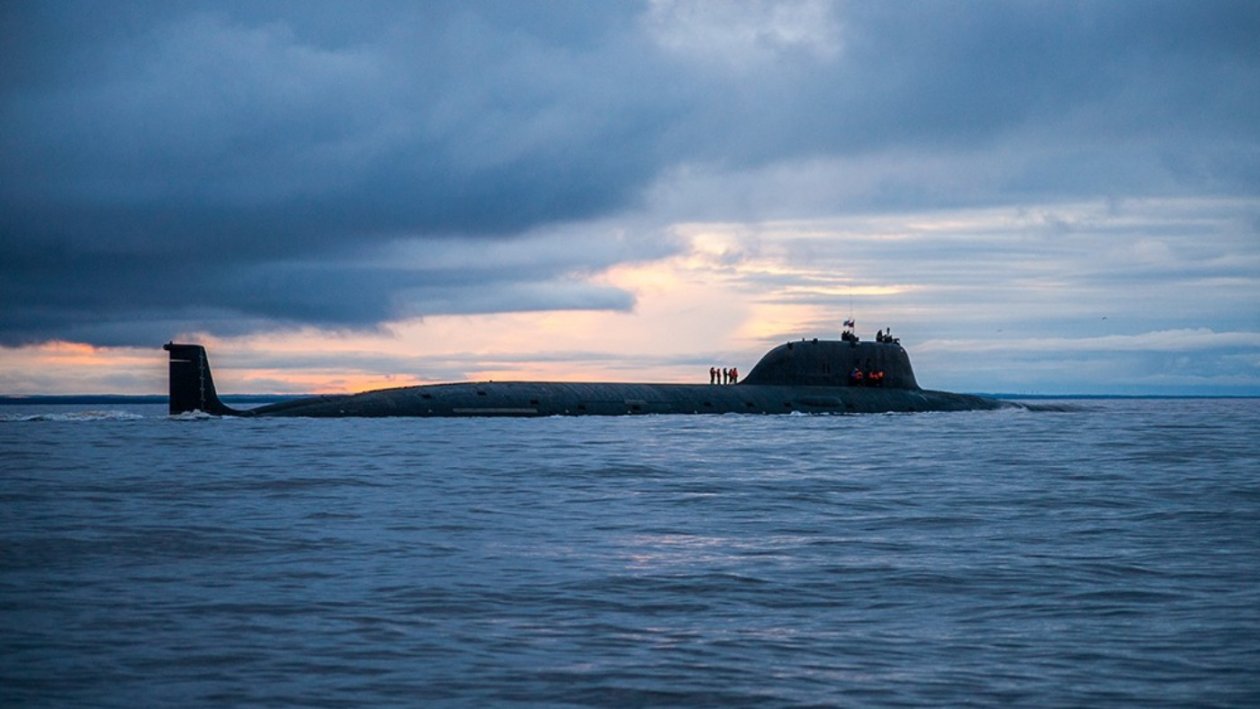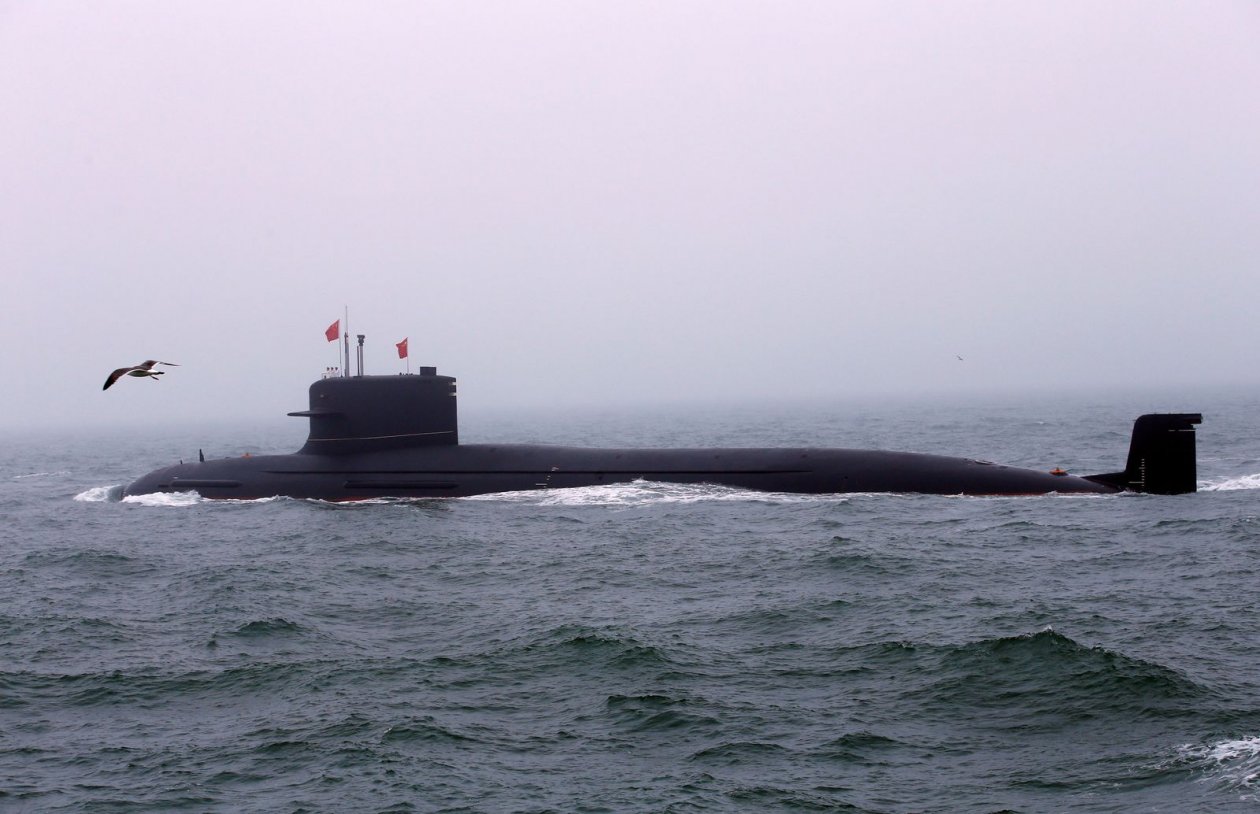Why Does the West Hate North Korea?
 PATRICE GREANVILLE
PATRICE GREANVILLE
Anti North Korean propaganda is so pervasive, so vicious, and so obsessive that it easily outstrips the anticommunist vitriol dispensed to other nations designated as "enemies" by the perennially sanctimonious "indispensable nation". Such unrelenting hybrid war by the empire's minions is designed not only to keep the victimised nation isolated and in penury, but to serve notice to other nations that anyone defying Uncle Sam's diktats is also liable to find itself in similar sorry circumstances. In any case, here's perhaps the best and most lucid denunciation and rebuttal of the arch-hypocritical effluvia emanating from the US disinformation machine and that of its vassal states. It was penned by our editor emeritus André Vltchek. —PG
Why Does the West Hate North Korea?
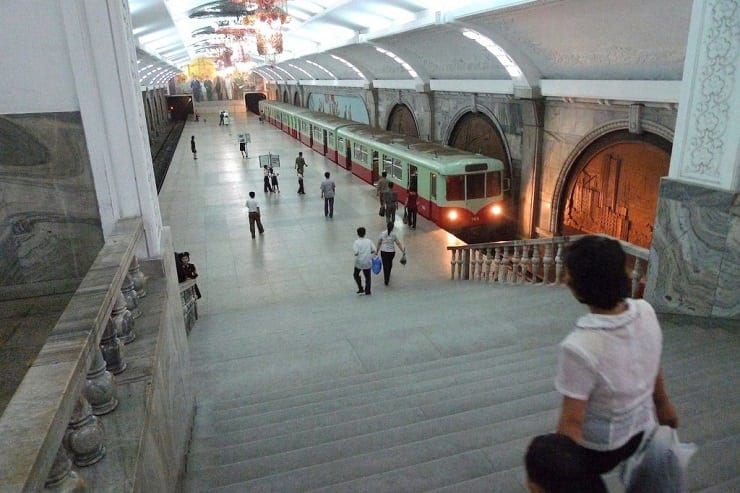
North Korea's capital subway—spotless. No one visiting North Korea today can understand how these people, after a genocidal attack by the West, managed to rebuild their nation in such a glorious way. (Photo: A. Vltchek)
How much more can one country endure?
More than 60 years ago, millions of people above the 38th parallel died. They were literally slaughtered by the US-led coalition.
After that, after its victory, North Korea was never left in peace. The West has been provoking it, threatening it, imposing brutal sanctions and of course, manipulating global public opinion.
Why? There are several answers. The simple one is: because it is Communist and because it wants to follow its own course! As Cuba has been doing for decades… As several Latin American countries were doing lately.
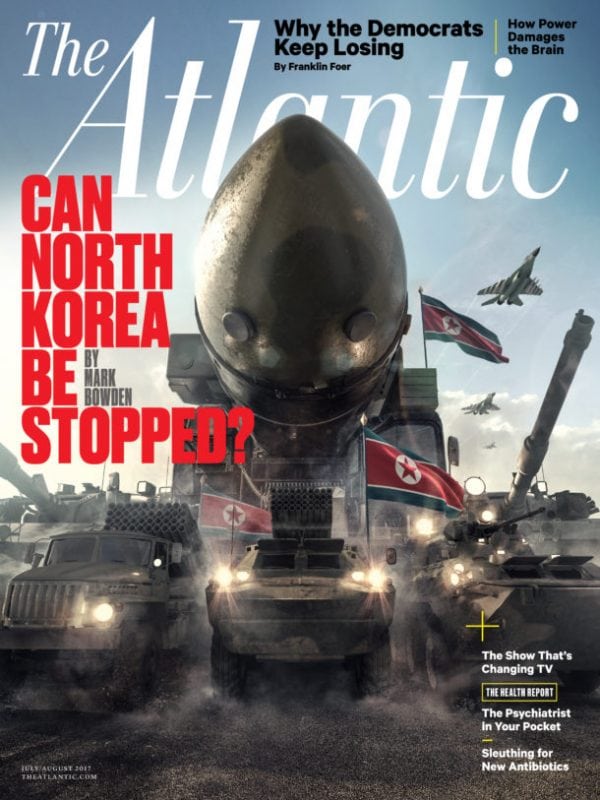
Typical warmongering against North Korea, by a supposedly reputable publication. Not an atom of human solidarity with a clear victim of large-scale aggression. In reality, for most of the world the question is, can the American sociopathic hegemon be stopped?
But there is one more, much more complex answer: because the DPRK fought for its principles at home, and it fought against Western imperialism abroad. It helped to liberate colonized and oppressed nations. And, like Cuba, it did it selflessly, as a true internationalist state.
The African continent benefited the most, including Namibia and Angola, when they were suffering from horrific apartheid regimes imposed on them by South Africa. It goes without saying that these regimes were fully sponsored by the West, as was the racist madness coming from Pretoria (let us also not forget that the fascist, apartheid South Africa was one of the countries that was fighting, on the side of the West, during the Korean War).
The West never forgot nor ‘forgave’ the DPRK’s internationalist help to many African nations. North Korean pilots were flying Egyptian fighter planes in the 1973 Arab-Israeli War. The DPRK was taking part in the liberation struggle in Angola (it participated in combat operations, alongside the People’s Armed Forces for the Liberation of Angola (FAPLA)), it fought in Rhodesia, Lesotho, Namibia (decisively supporting SWAPO) and in the Seychelles. It aided the African National Congress in its struggle against apartheid in South Africa. In the past, it had provided assistance to then progressive African nations, including Guinea, Ethiopia, Zimbabwe, Mali and Tanzania.
The fact that people of the DPRK spilled their blood for freedom in the most devastated (by the Western imperialism) continent on earth – Africa – is one of the main reasons why the West is willing to go ‘all the way’, trying to “punish”, systematically discredit, even to liquidate this proud nation. The West is obsessed with harming North Korea, as it was for decades obsessed with destroying Cuba.
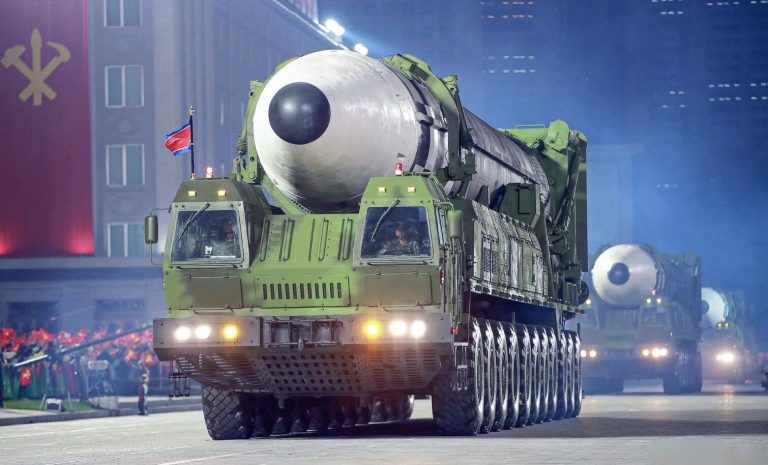
North Korea has painfully built an advanced weapons inventory capable of keeping the empire and its accomplices at bay. For that, it is accused of being "an international security threat". To whom?
The West plundered Africa, an enormous continent rich in resources, for centuries. It grew wealthy on this loot. Anybody who tried to stop it, had to be liquidated.
The DPRK was pushed into a corner, tormented and provoked. When Pyongyang reacted, determined to protect itself, the West declared that defense was actually “illegal” and that it represented true “danger to the world”.

FILE PHOTO KOREA - UNDATED: (FILE PHOTO) U.S. troops emerge from tandem helicopters onto an open field during the Korean War (1950 - 1953). (Photo by Archive Photos/Hulton Archive/Getty Images)
The DPRK refused to surrender its independence and its path – it continued developing its defensive nuclear program. The West’s propaganda apparatus remained in top gear, spreading toxic fabrications and polluted the entire Planet with them. As a result, the entire world is convinced that “North Korea is evil”, but it has absolutely no idea, why? The entire charade is built on clichés, but almost no one challenges it.
Christopher Black, a prominent international lawyer based in Toronto, Canada, considers new sanctions against the DPRK as a true danger to the world peace:
“Chapter VII of the UN Charter states that the Security Council can take measures against a country if there is a threat to the peace and this is the justification they are using for imposing the sanctions. However, it is not the DPRK that is creating a threat to the peace, but the USA which is militarily threatening the DPRK with annihilation. The DPRK has clearly stated its nuclear weapons are only to deter an American attack which is the threat to the peace.
The fact that the US, as part of the SC is imposing sanctions on a country it is threatening is hypocritical and unjust. That the Russians and Chinese have joined the US in this instead of calling for sanctions against the US for its threats against the DPRK and its new military exercises which are a clear and present danger to the DPRK is shameful. If the Russians and Chinese are sincere why don’t they insist that the US draw down its forces there so the DPRK feels less threatened and take steps to guarantee the security of the DPRK? They do not explain their actions but their actions make them collaborators with the USA against the DPRK.”
US/NATO Threatens the DPRK, China and Russia’s Far East
The US/NATO military bases in Asia (and in other parts of the world) are actually the main danger to the DPRK, to China and to the Russian “Far East”.
Enormous air force bases located in Okinawa (Kadena and Futenma), as well as the military bases on the territory of the ROK, are directly threatening North Korea, which has all rights to defend itself and its citizens.
It is also thoroughly illogical to impose sanctions on the victim and not on the empire, which is responsible for hundreds of millions of lost human lives in all corners of the Globe.
Addendum
The US war on Korea remains an international war crime worthy of a Nuremberg tribunal. Same for Vietnam later. And, it should be noted, this Wiki page, from which we quote, conveniently forgets about America's bacteriological and chemical warfare on Korea, including the liberal use of napalm.
Even the CIA-influenced Wikipedia recognises the savagery of US bombing of Korea. Please read the following passage, and hopefully the whole page later:
The bombing of North Korea
Air forces of the United Nations Command carried out an extensive bombing campaign against North Korea from 1950 to 1953 during the Korean War. It was the first major bombing campaign for the United States Air Force (USAF) since its inception in 1947 from the United States Army Air Forces (USAAF). During the campaign, conventional weapons such as explosives, incendiary bombs, and napalm destroyed nearly all of the country's cities and towns, including an estimated 85 percent of its buildings.[1]
On 17 November 1950, General MacArthur told U.S. Ambassador to Korea John J. Muccio, "Unfortunately, this area will be left a desert." By "this area" MacArthur meant the entire area between "our present positions and the border."[10]
In May 1951, an international fact finding team from East Germany, West Germany, China, and the Netherlands stated, "The members, in the whole course of their journey, did not see one town that had not been destroyed, and there were very few undamaged villages."[11]
On 25 June 1951, General O'Donnell, commander of the Far Eastern Air Force Bomber Command, testified in answer to a question from Senator John C. Stennis ("...North Korea has been virtually destroyed, hasn't it?): "Oh, yes; ... I would say that the entire, almost the entire Korean Peninsula is just a terrible mess. Everything is destroyed. There is nothing standing worthy of the name ... Just before the Chinese came in we were grounded. There were no more targets in Korea."[12]
(Bombing of North Korea, Wikipedia)
ABOUT THE AUTHOR
 Our Editor Emeritus and Senior Roaming Correspondent André Vltchek was a novelist, philosopher, investigative journalist, filmmaker, photographer and playwright. He covered dozens of war zones and conflicts from Bosnia and Peru to Sri Lanka, DR Congo,Timor-Leste, Iraq and Syria. A passionate communist and internationalist, he was a strong critic of Western policies towards the rest of the world. After living for many years in Latin America and Oceania, Vltchek died "under suspicious circumstances" in September 2020, in Istanbul, Turkey. On 22 September 2020, he died while traveling overnight from the Turkish Black Sea coastal city of Samsun to Istanbul. Andre Vltchek, 57, and his wife were traveling inside a rented and chauffeured car and arrived in front of their Istanbul hotel at around 5:30 a.m. on Tuesday. His wife tried to wake him up to tell him they had arrived but could not do so, the Anadolu Agency reported. The private DHA news agency said police recorded his case as a “suspicious death.”[2] André Vltchek was born in Leningrad (now Saint Petersburg), the Soviet Union, in 1963. He spent some of his adult life in New York City and worked and lived in all of the continents of the world.
Our Editor Emeritus and Senior Roaming Correspondent André Vltchek was a novelist, philosopher, investigative journalist, filmmaker, photographer and playwright. He covered dozens of war zones and conflicts from Bosnia and Peru to Sri Lanka, DR Congo,Timor-Leste, Iraq and Syria. A passionate communist and internationalist, he was a strong critic of Western policies towards the rest of the world. After living for many years in Latin America and Oceania, Vltchek died "under suspicious circumstances" in September 2020, in Istanbul, Turkey. On 22 September 2020, he died while traveling overnight from the Turkish Black Sea coastal city of Samsun to Istanbul. Andre Vltchek, 57, and his wife were traveling inside a rented and chauffeured car and arrived in front of their Istanbul hotel at around 5:30 a.m. on Tuesday. His wife tried to wake him up to tell him they had arrived but could not do so, the Anadolu Agency reported. The private DHA news agency said police recorded his case as a “suspicious death.”[2] André Vltchek was born in Leningrad (now Saint Petersburg), the Soviet Union, in 1963. He spent some of his adult life in New York City and worked and lived in all of the continents of the world.
The views expressed herein are solely those of the author and may or may not reflect those of The Greanville Post. However, we do think they are important enough to be transmitted to a wider audience.
All image captions, pull quotes, appendices, etc. by the editors not the authors.
YOU ARE FREE TO REPRODUCE THIS ARTICLE PROVIDED YOU GIVE PROPER CREDIT TO THE GREANVILLE POST VIA A BACK LIVE LINK.
![]() This work is licensed under a Creative Commons Attribution-NonCommercial 4.0 International License
This work is licensed under a Creative Commons Attribution-NonCommercial 4.0 International License
[premium_newsticker id="211406"]
Don't forget to sign up for our FREE bulletin. Get The Greanville Post in your mailbox every few days.

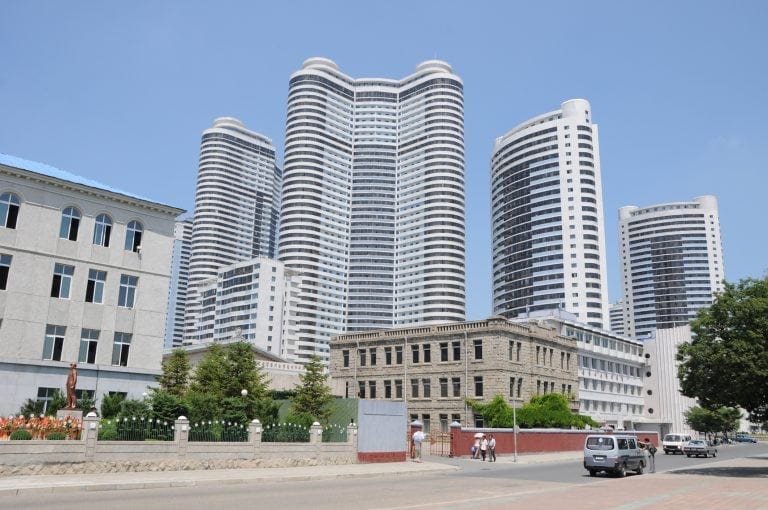
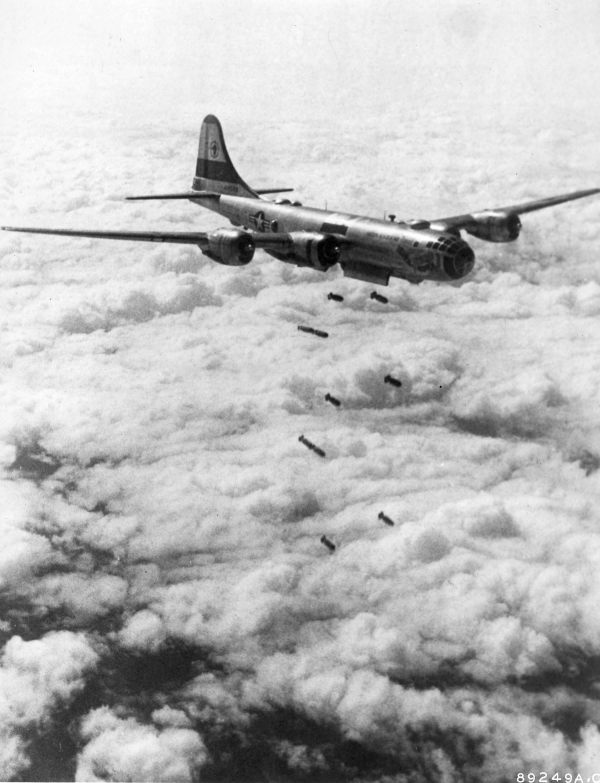


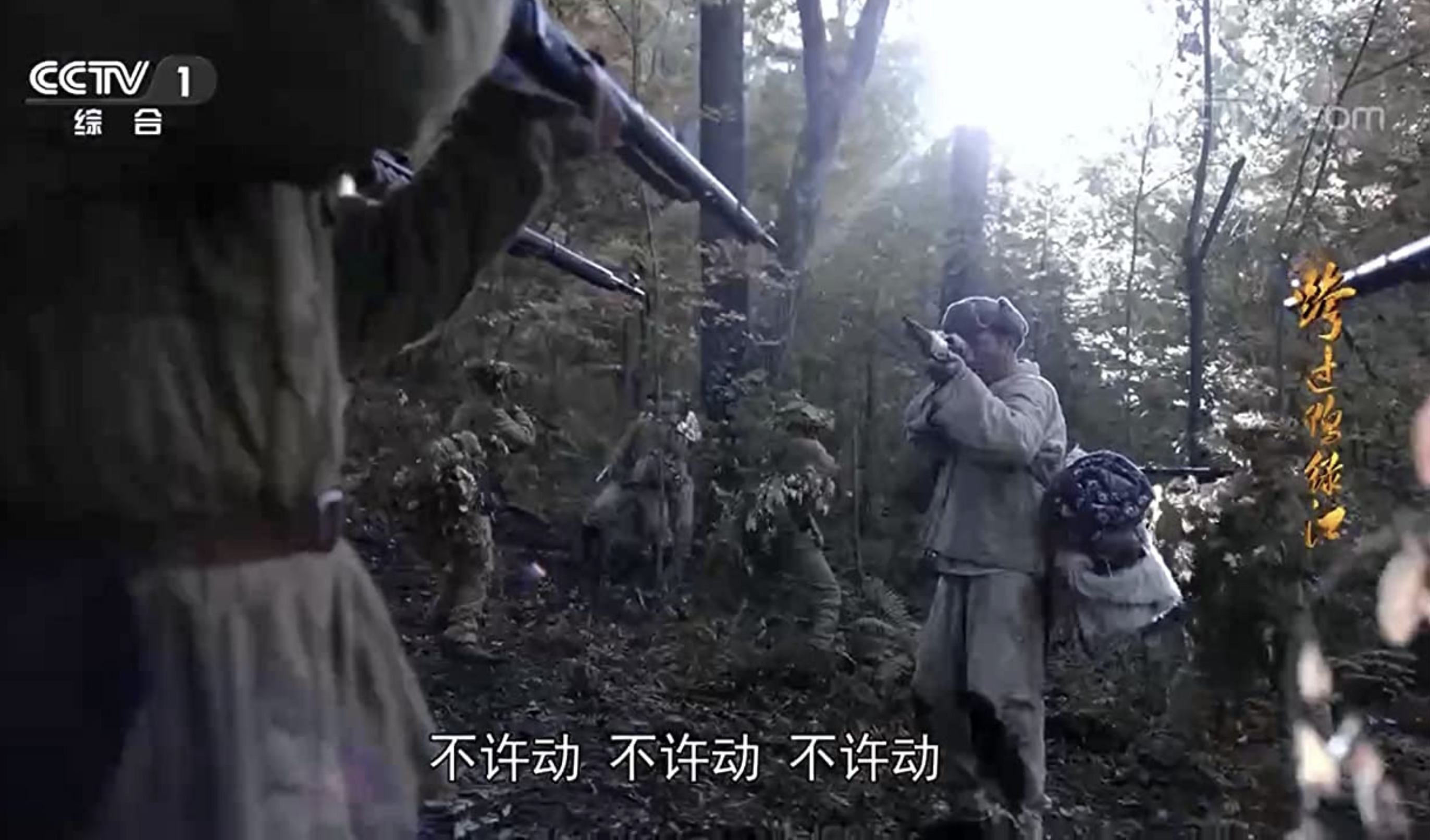 TV mini-series telling the PRC's official narrative of its involvement in the Korean War (1950-1953). It's one of several films produced in celebration of the 100th anniversary of the Communist Party of China (CPC) (founded in July 1921).
TV mini-series telling the PRC's official narrative of its involvement in the Korean War (1950-1953). It's one of several films produced in celebration of the 100th anniversary of the Communist Party of China (CPC) (founded in July 1921).



